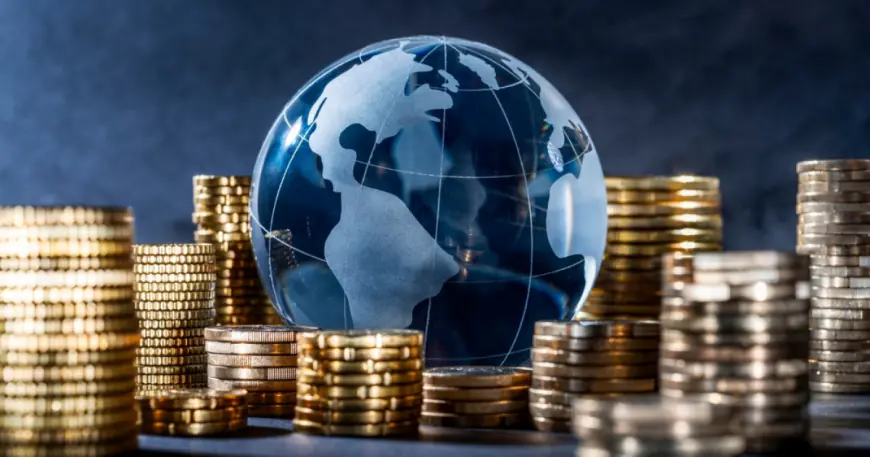Global Economic Outlook Points to Cautious Optimism Amidst COVID-19 Recovery
The world economy is showing promising signs of recovery after a tumultuous year marked by the unprecedented global pandemic. With the vaccination drive gaining momentum and governments implementing supportive fiscal policies, economists anticipate a gradual rebound in various sectors. This article provides an overview of the latest economic news and offers insights into the future prospects of the global economy.

1. Global Economic Resilience:
Despite the challenging circumstances, the global economy has displayed resilience in adapting to the new normal. The International Monetary Fund (IMF) currently predicts a growth rate of 5.5% for the global economy in 2021, offering a promising outlook for the post-pandemic recovery. Successful vaccination campaigns, along with strong policy interventions, have played a pivotal role in fostering economic stability.
2. United States Economic Recovery:
The United States, the world's largest economy, has demonstrated remarkable resilience despite the pandemic's severe impact. The government's swift implementation of monetary and fiscal policies, such as stimulus measures and relief packages, has provided much-needed support to businesses and individuals. The recent $1.9 trillion American Rescue Plan Act promises to further stimulate recovery efforts, including direct payments to households, extended unemployment benefits, and funding for vaccine distribution.
3. China's Resilient Economic Growth:
China, the second-largest global economy, has experienced a V-shaped economic recovery, with GDP growth expanding by over 6% in 2020. This strong rebound is primarily attributed to the government's strict containment measures, robust fiscal stimulus, and effective management of the pandemic. With its economy gradually shifting from exports to domestic consumption, China is likely to maintain steady growth in the coming years.
4. The European Union's Recovery Fund:
The European Union (EU) has unveiled a €750 billion ($905 billion) recovery fund, known as Next Generation EU, to aid member states in recovering from the pandemic's economic fallout. This stimulus package aims to support European businesses, enhance digitalization efforts, and promote green and sustainable initiatives. The successful distribution and utilization of these funds are expected to boost the region's economic recovery and strengthen its resilience.
5. Emerging Market Prospects:
Emerging markets, often hit harder during crises, have shown signs of recovery amidst ongoing challenges. Countries like India, Brazil, and Mexico, which experienced significant economic contractions in 2020, are projected to rebound in 2021 driven by policy support and increased consumption. However, concerns surrounding rising debt and inflation need to be actively managed to ensure sustained growth.
6. The Future of Work:
The pandemic has accelerated various transformative trends, particularly in the labor market. Remote work, digitization, and automation have gained traction, prompting industries to adapt swiftly. While this transformation has created new opportunities, it has also increased concerns surrounding job displacements and the need for upskilling and reskilling initiatives. Governments and organizations must prioritize investing in workforce development programs to ensure long-term economic sustainability.
7. Climate Change and Sustainable Development:
Amidst discussions surrounding the global pandemic recovery, world leaders are emphasizing the importance of addressing climate change and promoting sustainable development. The adoption of clean energy solutions, investment in green technologies, and the commitment to carbon neutrality are key objectives that will shape the future of the global economy. Businesses are expected to play a vital role in transitioning towards a more sustainable and environmentally conscious approach.
Conclusion:
While the global economy continues to recover from the pandemic's impact, cautious optimism prevails. The coordinated efforts of governments, effective policy interventions, and ongoing vaccination campaigns have laid a strong foundation for economic resilience. However, uncertainties surrounding new variants of the virus, geopolitical tensions, and the pace of economic recovery across various sectors remain significant challenges. Vigilance and proactive measures will be required to navigate a sustainable and inclusive economic revival.

 Admin
Admin 





